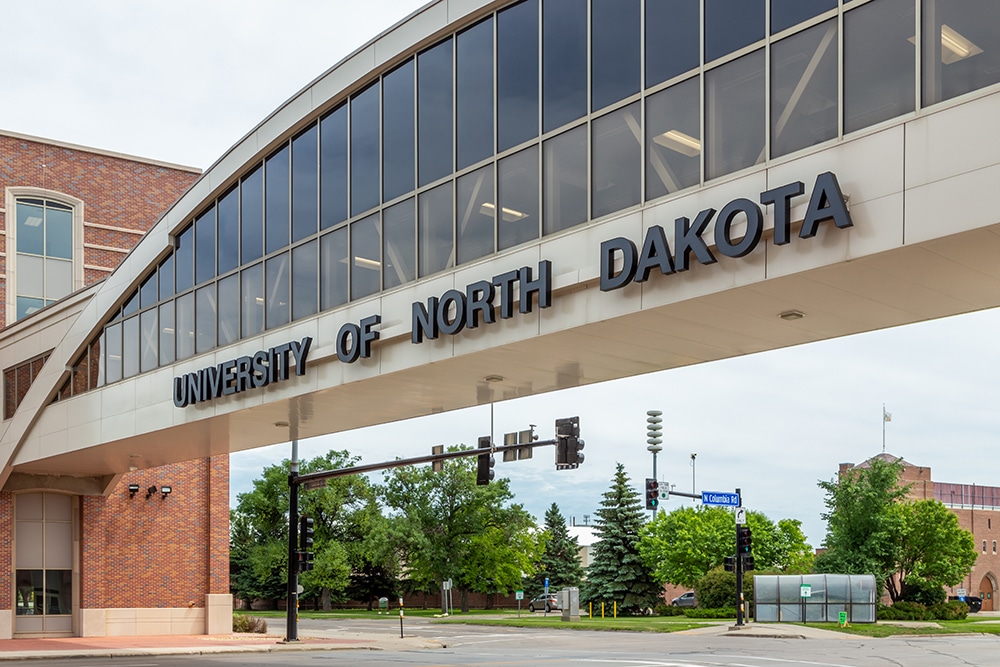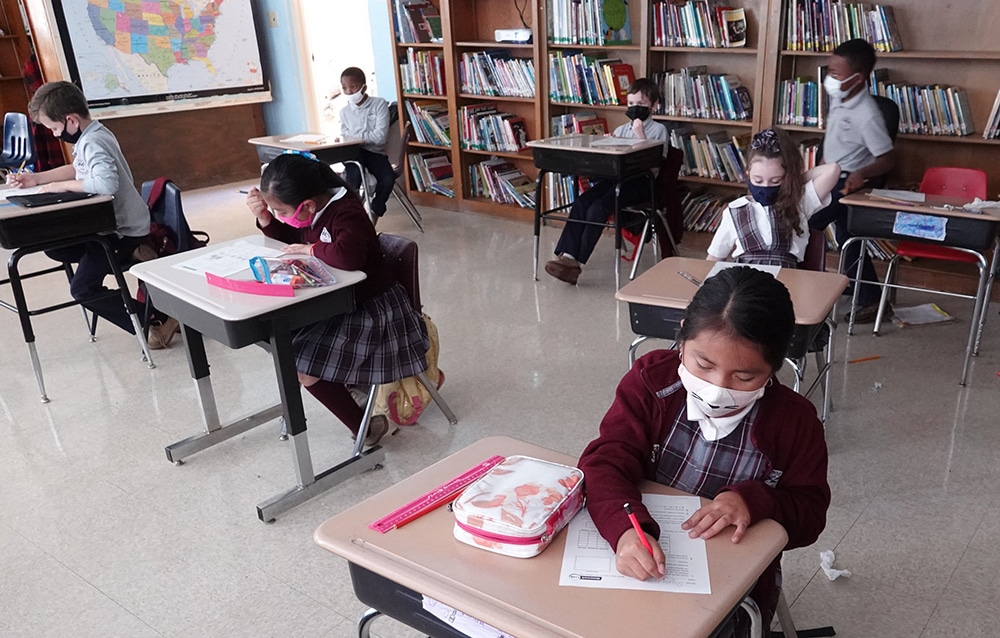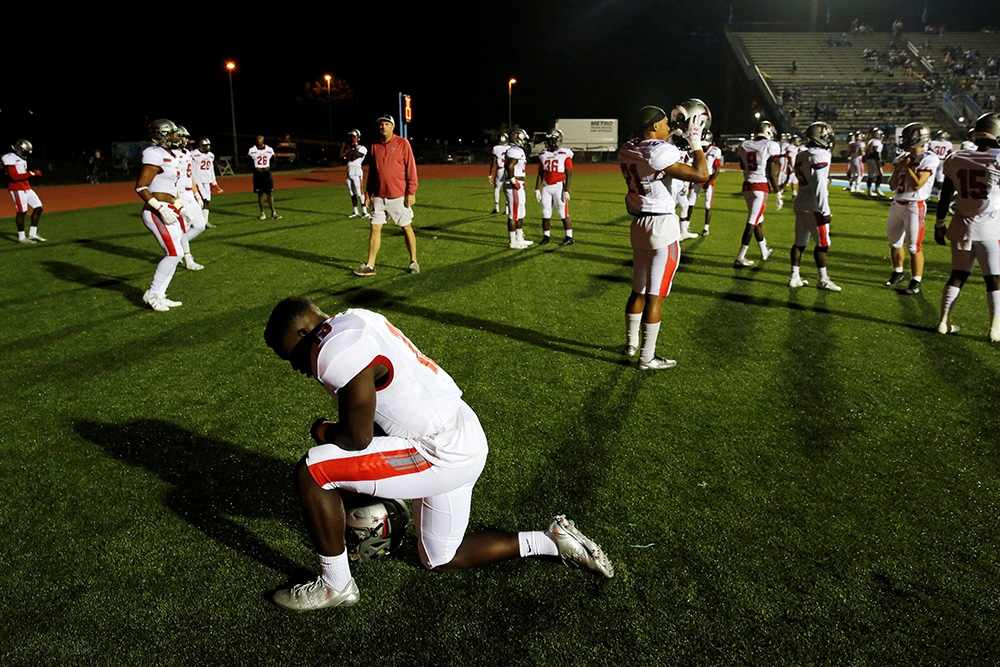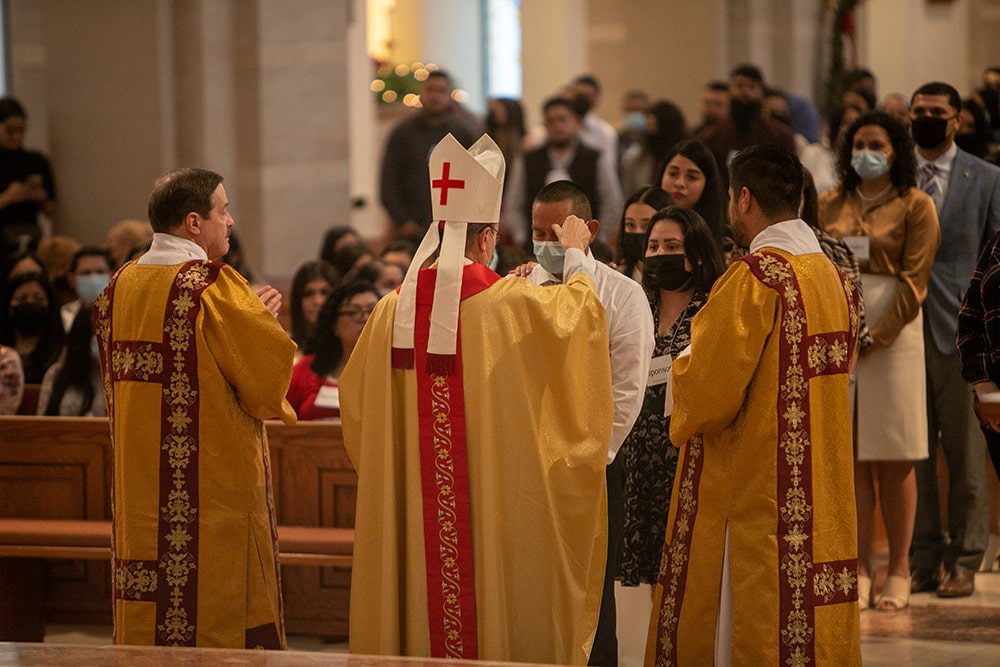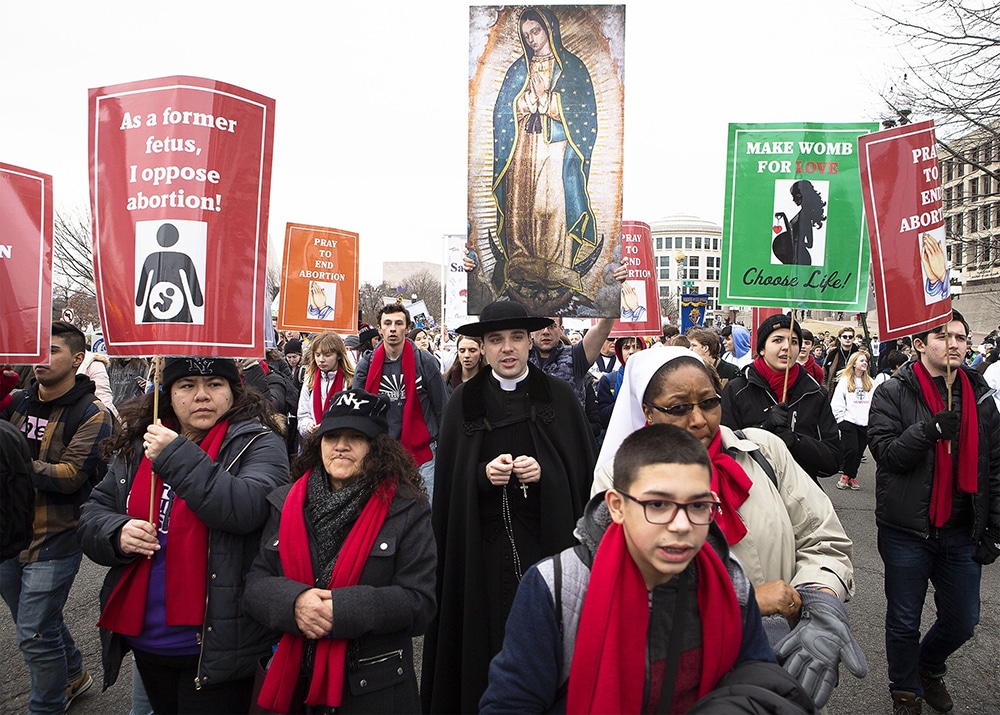A proposed “gender inclusion” policy at the University of North Dakota has prompted a strong reaction from the state’s two Catholic bishops. Bishop David D. Kagan of Bismarck and Bishop John T. Folda of Fargo directed the North Dakota Catholic Conference to send a letter to parents and families of the state’s Catholic schools and parishes warning them of the university’s plans to force all university faculty, staff, students and student organizations to use an individual’s preferred pronoun, regardless of biological sex. Also, the proposal could require university housing to room students with those of opposite sex.
Christopher Dodson, the executive director and general counsel of the North Dakota Catholic Conference, wrote the letter, which was sent to families on Jan. 11. The letter stated, in part: “As you and your child consider prospective higher educational opportunities, we urge you to examine the campus environment and whether it is conducive or hostile to not only the Catholic faith but also the truth about the human person. … The proposed policy requires campus-wide use of preferred pronouns, acceptance of an ‘expressed gender identity’ and the rejection of any assumption of a binary, or biological-based gender.”
Dodson explained to Our Sunday Visitor that the proposal unconstitutionally compels speech and a particular viewpoint to those on campus. Housing could be problematic, Dodson said, because the policy is overly broad. “Students should not have to rely on receiving an exemption to the on-campus housing policy or requesting a roommate change to ensure that the student is placed with someone of the same sex,” Dodson said.
Dodson acknowledged in his letter that everyone should be treated with respect, but the “proposal goes beyond setting mere rules for administrative tasks and actually embraces and demands acceptance of a particular ideology about gender and language that is contrary to Catholic teaching and Infringes upon free speech and religious beliefs. … Students and faculty do not lose their First Amendment rights when they enter the doors of a state university.”
Strong response
The letter accomplished what an earlier one had failed to do — namely, prompt a response from the university. Dodson had written to UND’s policy officer in October about the bishops’ concerns.
“The conference never received a reply,” Dodson said. “[Bishop Kagan and Bishop Folda] felt that since high school seniors will soon be deciding their plans for next fall, parents with students at Catholic high schools should be aware that the policy could be implemented at UND.”
Parent response was swift in contacting the university and also spreading the word. UND is located in Grand Forks, and the Grand Forks Herald reported that Mayor Brandon Bochenski sided with the Catholic conference. He wrote on social media: “In Grand Forks, North Dakota, we treat everyone with respect, dignity and civility. This exact statement is already in the UND Code of Student Life and a cornerstone of our Christian faith. … Compelling speech and forcing an ideology on our students, our children and our community is abhorrent. Is it possible for a university to focus on academic rigor and preparing our youth to enter the workforce with the skills of adulthood?! A sad day for my alma mater.”
At a Jan. 14, news conference, university president Andrew Armacost defended the proposed policy, stating that the desire is to treat everyone respectfully. “The draft policy is intended to state our support to our LGBTQ members and, in particular, to our transgender and nonbinary members, with that same guarantee of access to education and fair employment without fear of discrimination or harassment.”
Addressing concerns regarding student housing, he admitted that the draft policy doesn’t discuss the specifics of the housing assignment process. “The language in the draft policy is intended to offer assurance that trans and gender-nonconforming students will be provided access to housing consistent with their gender identity. … We will look at everything on a case-by-case basis. Housing would make sure we have appropriate accommodations to both students. … We certainly would not want to put students in a living situation where any one of them would be uncomfortable.”
Donna Smith, the school’s vice president of equal opportunity, said that UND’s current policy allows students to request a roommate change without giving a reason. When asked if any formal complaints of harassment have been filed, Smith said no, but she stated that she was aware that some LGBTQ students had felt discriminated against.
Legislative reaction
When Armacost was asked if he feared that state lawmakers would cut funding to the university because of the policy, he said that he had been on the phone with a number of legislators in recent days. “One of the most important things I can do as president,” he said, “is to make sure that the relationship with those legislators is strong and that they have the information and understanding of why we are considering different policy changes and to make sure that I listen to their input very, very carefully.”
North Dakota state Senator Janne Myrdal told Our Sunday Visitor that Armacost’s past behavior says otherwise. “He said he’s going to work with lawmakers,” she said. “Well, he met with nine legislators several times last fall, and he didn’t listen to them. They warned him, ‘Don’t do this; it’s going to backfire.’ I’ve spoken with several of them, and they are mad — and they are not far-right conservatives.”
“The letter written by the bishops is brilliant,” Myrdal said. “Enough is enough. We all have equal protection under the law. Why are we picking one group above the others? They say it doesn’t affect housing, but in the same sentence [they] say we have to make sure people will get the housing of their preference.”
Legal landscape
Regarding the situation at UND, Joe Cohn, legislative and policy director for the Foundation for Individual Rights in Education (FIRE), said that “this is a very new and still-developing area of the law, and in the area of higher ed, actual cases that FIRE knows about are still fairly thin on the ground. Generally speaking, this is simply the latest area where new developments in anti-discrimination law are coming into tension with freedom of speech and religious liberty.”
UND, which has an enrollment of nearly 14,000 students, is the only one of North Dakota’s 11 public colleges and universities that is developing such a policy. No date has been given for when it will be finalized. Policies regarding sexual orientation and gender preferences have been defeated multiple times by the Republican-controlled state legislature, so if the University of North Dakota does press forward with its proposed policy, it could get reversed by state lawmakers.
Patti Maguire Armstrong writes from North Dakota.

